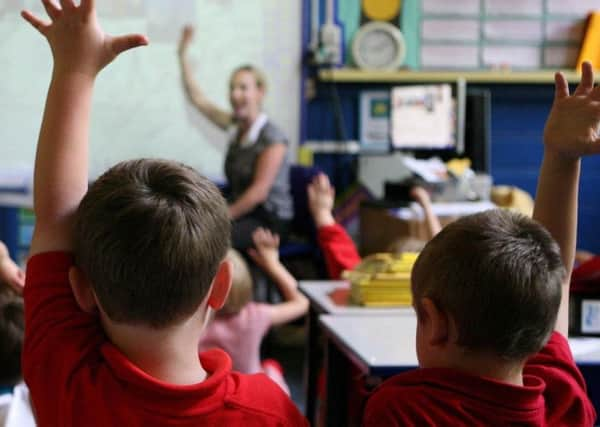White teachers twice as likely to be promoted than BME staff


Professor Rowena Arshad, head of the school of education at the University of Edinburgh, said it was time for employers and those training upcoming school leaders tackled the issue of racism within the profession, corridors, classrooms and staff rooms.
New research from Glasgow City Council, which surveyed 490 staff across all school sectors and 513 secondary pupils, and also ran focus groups, found a big divide in how BME teachers and their white colleagues viewed ethnic diversity.
Advertisement
Hide AdAdvertisement
Hide AdThe main finding was that “white Scottish/white other” teachers were twice as likely as their BME colleagues to have been appointed to a promoted post, with BME respondents less likely to be encouraged by their managers to apply.
In terms of entering the profession, 66 per cent of BME respondents viewed potential discrimination from colleagues as a deterrent to taking up teaching, but only 11 per cent of white respondents agreed.
One Pakistani teacher said that they faced issues which did not impact on white colleagues, saying that the current “political climate was a huge hindrance for Muslim teachers.”
The report ‘Ethnic Diversity in the Teaching Profession: a Glasgow perspective’ also showed a large divide along ethnic lines in how teachers view the scale of problems faced by BME teachers.
Three-quarters of BME teachers felt promoted posts were difficult to obtain, while less than 10 per cent of white teachers had this viewpoint.
While
However, none of the BME pupils surveyed wanted to teach, instead saying they had “higher aspirations” with their families wanting them to aim for professions in science, medicine, computing or business.
Prof. Arshad, who is chairing a Scottish Government short-term working group aimed at increasing the number of teachers from under-represented staff, has previously highlighted that the proportion of BME teachers fell between 2011 and 2016 from 1.9 to 1.3 per cent of the total workforce.
Commenting on the council’s research, Prof Arshad said: “It is time that employers and those that provide preparation for school leaders tackle the issue of racism within the profession, corridors and staff rooms.
Advertisement
Hide AdAdvertisement
Hide Ad“Stop sliding away from confronting the issue - hiding behind phrases like ‘unconscious bias’ or just talking about inclusion. Perhaps the ‘face fits’ and ‘old pals’ issue still exists?”
John Swinney, MSP, Education Secretary, said: “We want BME groups to be better represented in teaching and have engaged with a number of charities, local authorities, ITE (initial teacher education) providers and other groups to get their views on how to make that happen.